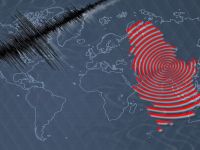TECOM Education Cluster shares best practices at Mauritius International Knowledge Investment Forum
Policymakers in Dubai and the UAE are aware that the delivery of high quality education is fundamental to creating and retaining high calibre human resources that will drive economic growth and position Dubai as a global knowledge hub. Therefore, large investments have been made to ensure quality education at public and private sector institutions at the basic, secondary and university level, according to Dr Ayoub Kazim, Managing Director, Dubai Knowledge Village and Dubai International Academic City, members of TECOM Investments’ Education Cluster.
Dr Kazim added: “The formation of Dubai International Academic City was the result of an unprecedented demand for higher education from both regional and expatriate students in Dubai. Incidentally, a greater demand rose out of the tremendous growth of Dubai Knowledge Village, the precursor to DIAC, which facilitated the emirate as a whole to attract renowned educational institutions from around the world.”
Dr Kazim’s comments came during his keynote address at the Mauritius International Knowledge Investment Forum (MIKIF) held on 30 January in Balaclava, Mauritius. On behalf of the TECOM Education Cluster, Dr Kazim also shared best practices adopted across the UAE’s higher education sector and highlighted Dubai’s strategy of developing specialised infrastructure to host leading education providers from around the world.
MIKIF 2012 was organised by the Board of Investment, the national investment promotion agency of the Government of Mauritius. Focusing on latest trends and opportunities in higher education and providing an overview of international best practices in infrastructure and real estate development in higher education, the forum drew over 300 key decision makers from the Mauritian education sector including Dr Rajesh Jeetah, Honourable Minister of Tertiary Education, Science, Research and Technology. Investors and CEOs of property development firms, policy makers, university administrators and academics from India, Singapore and the UK keen to forge strategic alliances and make inroads into new markets were also present.
Nitin Pandea, Director, Board of Investment, Mauritius, said: “Over the years, Mauritius has meticulously assembled all the ingredients to transform itself into a leading knowledge hub, which has gained it a reputation as a reliable and trusted provider of quality education. Recently, the country has attracted prestigious academic institutions and universities to set up campuses in Mauritius. We are delighted with the participation and perspectives drawn at the Mauritius International Knowledge Investment Forum, which aims to showcase the diverse investment opportunities that we offer to the global education community.”
The Mauritius International Knowledge Investment Forum was supported by the Amity University of India and Medine Properties, Mauritius, as platinum sponsors.
Dubai International Academic City hosts 27 higher education institutions from 11 different countries that cater to approximately 20,000 students. Students at DIAC have access to over 300 higher education programmes including undergraduate and post-graduate disciplines in engineering, IT, media, business, fashion design, healthcare and mass communications.
Established in 2003, Dubai Knowledge Village is home to over 450 professional centres specialised in HR development, professional testing, as well as management training and consultancy services.
Background Information
TECOM Investments
TECOM Group, (formerly known as TECOM Investments) a member of Dubai Holding, is a strategic business enabler that contributes to the realisation of Dubai’s economic aspirations, through the creation of sector-focused business communities and work environments that provide innovative ecosystems.
TECOM Group’s Business Communities reinforce Dubai’s position as a global hub for business and commerce. Covering six vibrant industry sectors, we offer a home in the region to 5,600 companies ranging from start-ups to multinational corporations with a total workforce of 90,000.







